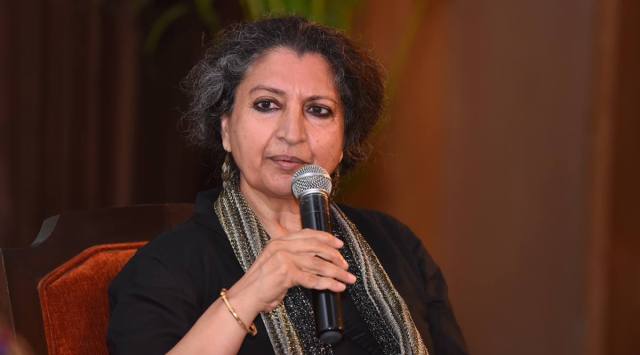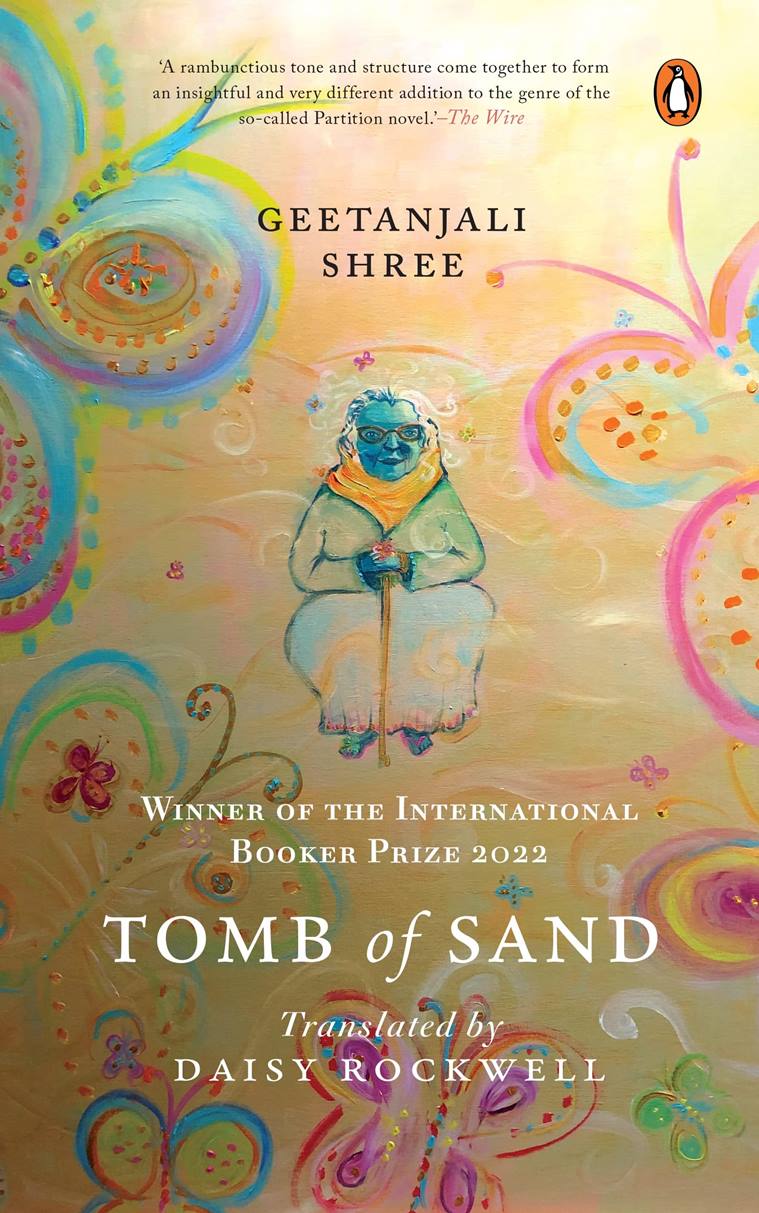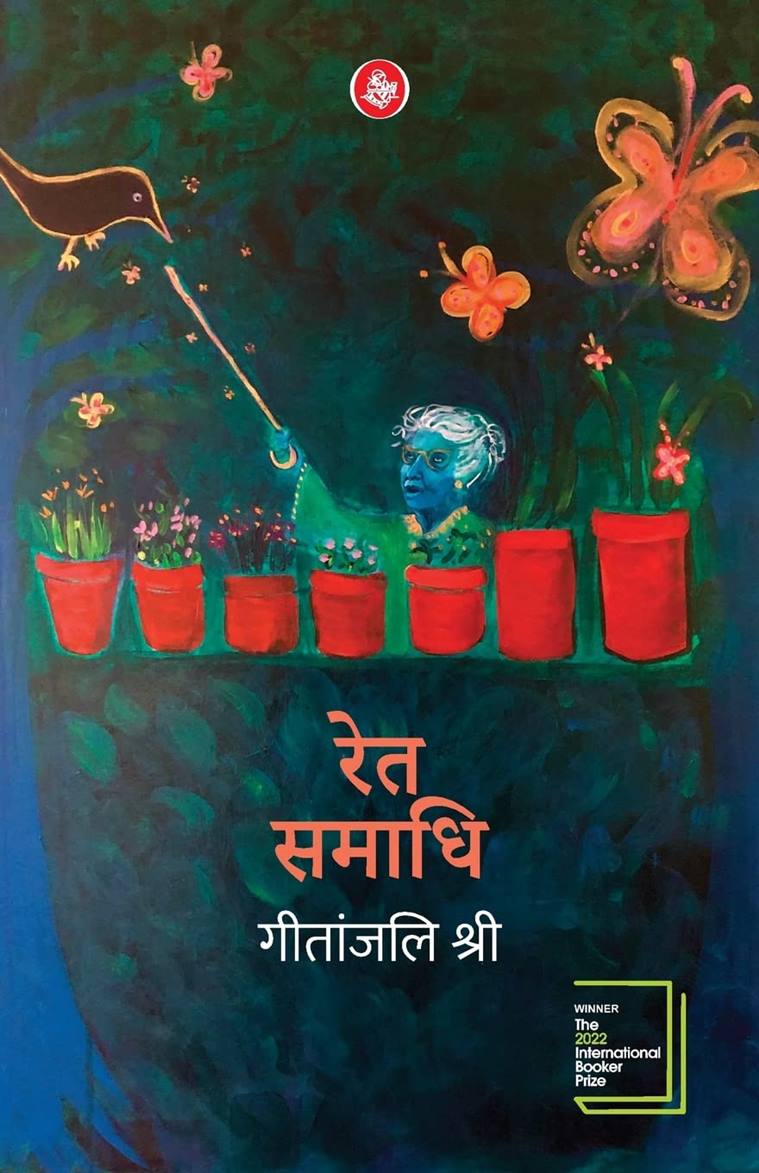Tomb of Sand’s Booker win has brought South Asian literature into world’s purview, says author Geetanjali Shree
"It is a book about partitions of many different kinds," she said, adding that the award-winning novel can't be boxed into a definite category
 Geetanjali Shree's novel 'Tomb of Sand' won the International Booker Prize this year (Source: Teamwork Arts)
Geetanjali Shree's novel 'Tomb of Sand' won the International Booker Prize this year (Source: Teamwork Arts)When Tomb of Sand, the English translation of writer Geetanjali Shree’s Hindi novel Ret Samadhi (2018, Rajkamal Prakashan), won the International Booker Prize, it threw the spotlight on the vast pool of Indian language literature. It is a transformative saga of an octogenarian woman’s search for the past, as she battles depression after losing her husband and decides to visit Pakistan years after the Partition where her true ‘identity surfaces’.
Buy Now | Our best subscription plan now has a special price
Shree, who was in the national capital to partake in a celebratory interaction with journalist and translator Poonam Saxena, organised by Teamwork Arts and ILF-Samanvay at the India Habitat Centre, sat down with indianexpress.com before the event to discuss more about her award-winning book, that transcends genres and subverts conventional stereotypes.
Excerpts:
How would you define your connection with Hindi? Is there a specific reason you turn to the language while writing?
Of course, it’s my mother tongue so I have an umbilical connection with the language. I know English and I can converse in it. But, when it comes to art and creativity, we always turn to the language which is deepest inside us, coursing in our blood. That, very often, is our mother tongue.
We are delighted to announce that the winner of the #2022InternationalBooker Prize is ‘Tomb of Sand’ by Geetanjali Shree, translated from Hindi to English by @shreedaisy and published by @tiltedaxispress@Terribleman @JeremyTiang @mervatim @VascoDaGappah @VivGroskop pic.twitter.com/TqUTew0Aem
— The Booker Prizes (@TheBookerPrizes) May 26, 2022
Many people have tried categorising Tomb of Sand into various genres. How would you define it?
I think, this is one of the problems that people have. They always like to define something and fix it. I think, sometimes, big pieces of work need not be so easily fixed into anything. The book is about ‘partition’ but not just about the one between India and Pakistan. It is also about the many different kinds of partitions that we create in our lives — between the environment and human beings, between human beings and other living creatures, between genders and age, among others. It is a book about partitions of many different kinds.
Writing this book has been a rather long journey. How did the changes outside reflect in your writing?
When you are working, you retire into a world of imagination but you are also involved with the world around you. It is all these things together that make a great book.
Even in your previous work, Maai, you have explored the journey of a mother. What piques your interest in writing about middle-aged and older women?
Older women have a lot of experience which lies unspoken and there are stories to tell — stories which others have not told. All writers want to pick up stories which have been left aside. They like to bring those to the centre.
 The novel is translated into English by Daisy Rockwell (Source: Amazon.in)
The novel is translated into English by Daisy Rockwell (Source: Amazon.in)
Maa’s name is revealed in the novel only after she moves to Pakistan. Was that a conscious choice?
Before shifting to Pakistan, she was Maa. After coming there, her other identity surfaces. We have many different identities. At different times, we are playing different identities. I am a woman. If I am a teacher, I am a teacher regardless of my gender. If I am a mother, I am a mother. When she is in Pakistan, her identity as a person who was in Pakistan with a particular name comes to the fore.
Tell us about some women writers who have inspired you.
If I have to name one, it is definitely Krishna Sobti. In a very different way, Manu Bhandari, who had a very low-profile way of writing, has also inspired me. Some Black-American writers such as Toni Morrison and Alice Walker, among others, have been an inspiration, too.
 ‘Ret Samadhi’ by Geetanjali Shree (Source: Amazon.in)
‘Ret Samadhi’ by Geetanjali Shree (Source: Amazon.in)
How important do you think the International Booker Prize win is, for other literature in Indian languages?
Any big prize is not casting its net only on a single thing. It is bringing to your notice a whole world. So, my work is not alone. I live in the world of Hindi literature and South Asian language literature. It is suddenly bringing into the world’s purview literature of South Asia, particularly written in non-English languages. It is for the world to realise that this literature has to be discovered.
📣 For more lifestyle news, follow us on Instagram | Twitter | Facebook and don’t miss out on the latest updates!



- 01
- 02
- 03
- 04
- 05




























